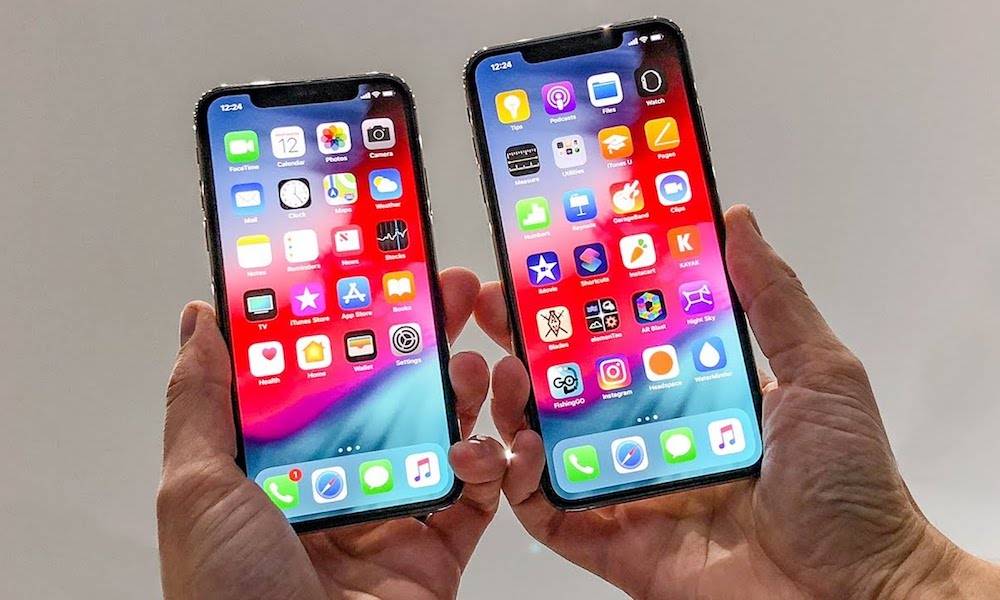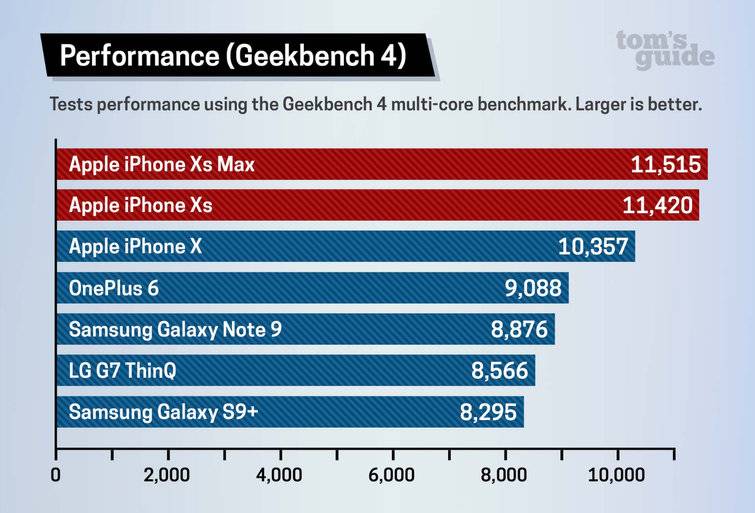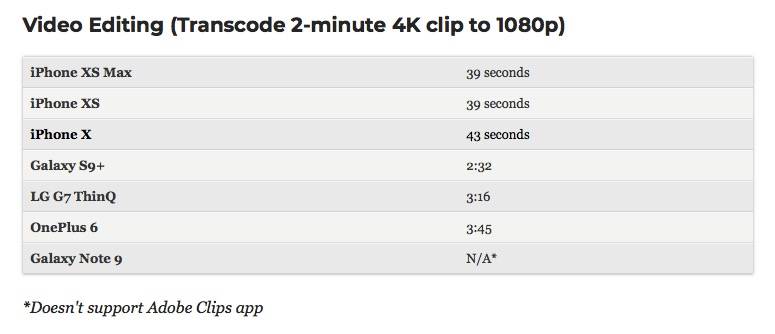iPhone XS Just Destroyed Every Android Flagship in Raw Performance
 Credit: The Verge / YouTube
Credit: The Verge / YouTube
Toggle Dark Mode
You undoubtedly expect Apple’s new iPhones to be faster than their predecessors. But just how much faster are they?
Well, we’re getting our first glimpse at early tests and benchmark data this week. And compared to the last generation of iPhone and current Android devices, there are some vast improvements across a couple of areas.
? iPhone XS Processor Performance
If early performance testing proves anything, it’s this: Apple currently has the fastest smartphones in the world. Again.
Both new models sport the world’s first 7-nanometer processor in a smartphone, the A12 Bionic. It’s a hexacore chip with faster performance cores and less power-hungry high-efficiency cores. They’re also outfitted with a new GPU that’s 50 percent faster.
All of that translates to some serious real-world performance. The new iPhones are, of course, a bit faster than their predecessors. But they also completely destroyed every Android flagship currently on the market in terms of performance.
Tom’s Guide recently tested the iPhone XS and iPhone XS Max in a variety of performance metrics and tests — including Geekbench 4, Slingshot Extreme, and GFXBench 5.0.
iPhone vs. iPhone
The iPhone XS hit a Geekbench 4 score of 11,420, while the iPhone XS Max reached 11,515. That’s about an 11 percent improvement over the iPhone X’s 10,357 Geekbench score.

iPhone vs. Android
Comparatively, Android flagships were a huge step behind the new iPhones.
The iPhone XS hit a Geekbench 4 score of 11,420, while the iPhone XS Max reached 11,515.
The fastest current Android device, the OnePlus 6, scored a 9,088 in Geekbench 4 testing.
Samsung’s fastest phone, the Galaxy Note 9, only got a 8,876 in the same testing.
When it came to video editing, Tom’s Guide put those devices through the same task: transcoding a 2-minute 4K video to 1080p.

The fastest Android device, the Samsung Galaxy S9+, took 2 minutes and 32 seconds to carry out the task. The iPhone XS and iPhone XS Max did it in just 39 seconds.
? iPhone XS LTE Performance
LTE speeds are a separate category than actual CPU performance. Basically, LTE performance indicates how fast you can download or upload content to and from the internet.
The iPhone XS and iPhone XS Max also show significantly increased speeds when it came to LTE performance.
A few days ago, wireless testing service SpeedSmart released its initial results of iPhone XS and XS Max LTE speeds. The service compared the new 2018 handsets to last year’s iPhone X.
Essentially, the iPhone XS and iPhone XS Max will have much speedier LTE performance across the three largest U.S. carriers — AT&T, T-Mobile and Verizon.
For comparison’s sake, an iPhone XS scored a 72.24 Mbps download speed, a vast upgrade over the iPhone X’s 27.67 Mbps. It’s a similar story for Verizon and T-Mobile, too.
Largely, the bump in LTE speeds can be attributed to the addition of 4×4 MIMO on the 2018 handsets. Android devices have had this technology for a while, but iPhone owners will be able to take advantage of it on this year’s stable of devices.
And while the iPhone XR will sport the same speedy A12 Bionic processor, it won’t be equipped with 4×4 MIMO. So as far as LTE speeds, the lower-priced handset won’t see the same gains.






